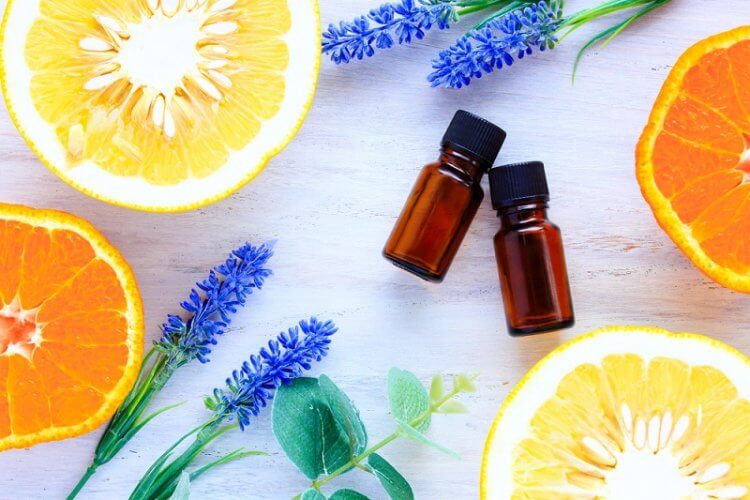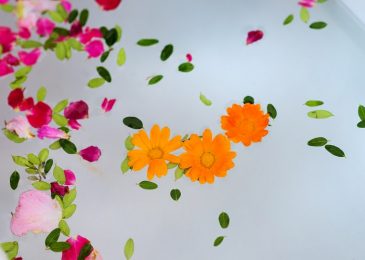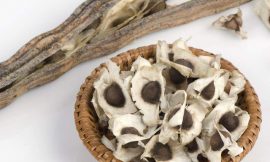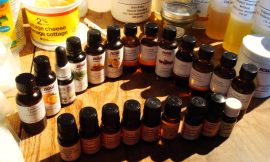How Aromas Essential Oils Affect Body and Mind Health

You probably take your sense of smell for granted – but did you know that both your physical and emotional well-being depends on it? Aromas Essential Oils abound in all parts of our lives – some positively and some negatively – but if you were to lose your sense of smell, it may affect your quality of life, in addition to affecting some of your other senses. Here’s a quick look at why you should value your sense of smell.
The Connection Between Smell and Taste
Olfaction, otherwise known as the sense of smell, is the only sense with a direct link to the brain. The sense of smell is connected to the sense of taste. The nose is capable of detecting a lot more smells than the ear can in sounds, and the nose is also capable of detecting over 10,000 different types of smells.
Up to 90% of what you taste is actually smelled. If you have a dog, you will know that a dog is capable of detecting a lot more smells than a human can – and its nose is highly stimulated a lot of the time! My dog uses his tongue a lot of the time when “sniffing” out Aromas Essential Oils, positive confirmation that smell and taste are connected in his world.
How Aromas Essential Oils Enter Your Nose
Simply put, your nose inhales a specific smell, chemically converts it, and then passes that information to your brain. Electrochemical messages are sent to the appropriate part of the brain, triggering the release of neurochemicals and causing subsequent effects. Of course, the whole process is a lot more complex than it sounds – but offset that against the fact that it happens in a matter of seconds and you can see what an amazing process it is!
The Importance of Smell
Your sense of smell allows you to identify the fragrance of a flower or the aroma of your favorite food; certain smells trigger memories of a specific, time, place, or person – both positive and negative experiences. Your sense of smell can also help you to identify danger; for example, fire. A loss of your sense of smell can alter your perception of taste. Losing your sense of smell has a significant impact on your life.
Causes of Smell Disorders
Some people lose their sense of smell, either permanently or temporarily. Smell disorders can be caused by a number of factors which include the following:
- respiratory infections
- dental problems
- medications
- nervous system disorders, including Alzheimer’s disease and Parkinson’s disease
- polyps in nasal cavities
- head injuries (frontal lobe)
- hormonal imbalances
- solvent and insecticide exposure
- aging
Scent Aromas Essential Oils Aromatherapy
Aromatherapy aims to improve your well-being by using, primarily, your sense of smell. Although aromatherapy works in a couple of ways, the quickest way in which essential oils access the body is through inhalation of the nose. Hence: Aromatherapy.
Inhalation is also one of the most effective ways to treat emotional problems in aromatherapy. This is probably why many people associate the practice of aromatherapy with the treatment of stress, depression, and anxiety. Although the scope of aromatherapy practice is much wider than this, it is true that many essential oils are suitable for relieving the symptoms associated with emotional problems, specifically through inhalation.
Aromatherapy diffusers, personal inhalers, and roll-on aromatherapy applicators can be used ineffectively in these situations. Some of the essential oils that are used to assist with emotional health issues include:
- lavender
- rose
- neroli
- bergamot
- clary sage
- frankincense
- geranium
- juniper
- patchouli
- vetiver
- sweet orange
- ylang-ylang
The smell, Aromas Essential Oils, and Your Health
As an aromatherapist, I am well aware of the power that scent has on my own health. In fact, since I started working with essential oils over a decade ago, my own sense of smell has become more acutely aware of the difference between “good” smells and “bad” smells. And I am not just talking about the difference between natural scents such as rose and horse manure!
Exposure to synthetic fragrances and highly chemicalized products often induces nausea and headaches in me, to the point that I can not be in the same space as women who wear synthetic, commercial perfumes, or homes which use highly toxic household cleaning products.
Make tinctures, poultices, infusions, and baths with herbs

How to make an herbal infusion:
Steep 1/3 cup of herbs in a quart of boiling water for 15 minutes. Let the mixture cool. Once it is cool to the touch, strain, and use.
How to make an herbal poultice:
Pour boiling water over 4 ounces of herbs and steep for 15 minutes. Let the mixture cool and once it is cool to the touch, place the herbal mixture into a sterile gauze cloth. Place the cloth on the sore or inflamed areas to relieve pain. Do not use it on open sores or wounds.
How to make an herbal bath:
Take one to four herbs and place them in the middle of a sterile gauze square. Wrap the cloth up over the herbs and tie it securely with a string. Place into the bathtub.
How to make an herbal tincture:
Ingredients:
- Dried or fresh herbs.
- 80 or 100-proof vodkas (do NOT use rubbing, or isopropyl alcohol).
- Glass jars with lids.
- Unbleached muslin or gauze.
- Jar labels and marking pens
Instructions:
Place the amount of herb you desire into the glass jar. Slowly pour the vodka into the jar until the herbs are completely covered.
Seal the jar tightly so that the liquid cannot leak or evaporate. Put the jar in a dark closet or basement for two weeks. Shake the jar vigorously around the same time every day during this two-week period.
After two weeks, the tincture is ready to bottle. Pour the tincture through the muslin or gauze into another jar. Squeeze the saturated herbs until no more fluid can be extracted.
Seal the jar with the lid and label it with the name of the herbs and the date. If stored properly your tincture can last up to one year.
The standard dosage over a tincture is one teaspoon no more than three times a day. You can dilute the tincture in water or tea.




